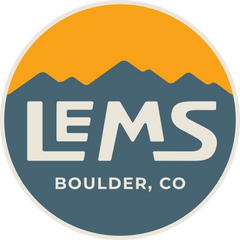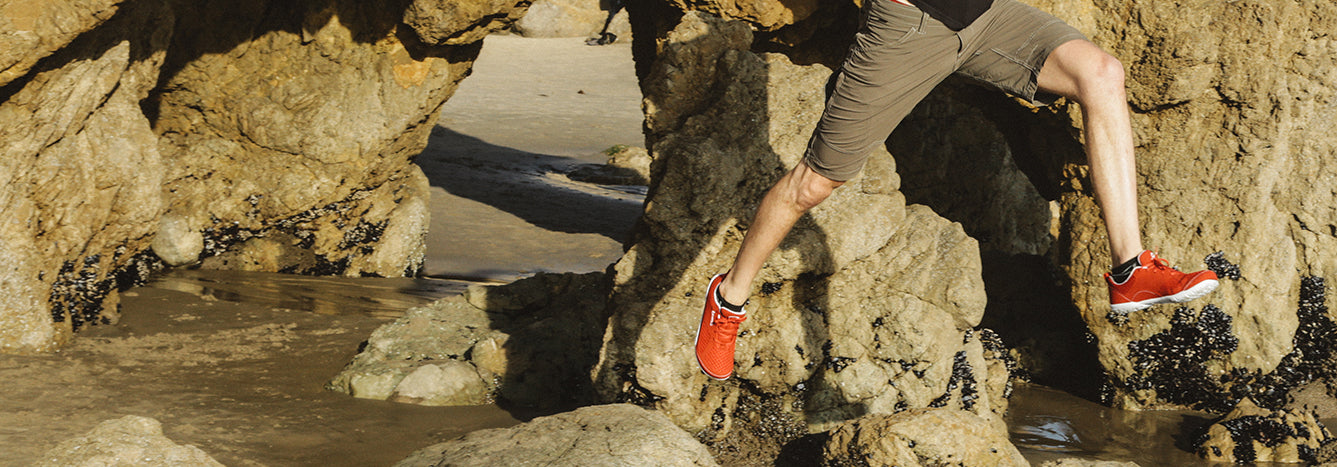Lems works with some of the foremost natural foot-form doctors in the world. One of those is family physician and runner Dr. Mark Cucuzzella. He has provided some superior insights for Lems’ minimalist shoe designs.
Over years of research, Dr. Cucuzzella has dissected hundreds of shoes, taught running form clinics around the country, opened a minimalist shoe store, and founded the Natural Running Center in Shepherdstown, West Virginia.
The Natural Running Center is dedicated to sharing information about natural running form, minimalism, and healthy running and walking practices. The NRC currently has over 20 membership stores, 12 of which carry Lems Shoes.
What is natural running all about?
If you are wondering what natural running means, these three key NRC principles will help illustrate the big picture. Keep this in mind as you read on: According to Dr. Cucuzzella, natural running is “not a specific method or brand, but rather what humans have done for millions of years.”
1. For feet, the world is flat.
With 26 bones, 33 joints, over 100 muscles, tendons (including the strongest one in the body) and ligaments, and some 200,000 nerve endings, the foot is one of most complex of all moving body parts. It is also one of the least understood. That said, one thing about the foot is very simple: It was made to move flat on the ground.
The foot is built to perform two critical functions: shock absorption and propulsion. When the foot can feel the ground naturally, either when barefoot or in a minimalist shoe, the feet work exactly the way they were meant to: flat on the ground.
When functioning naturally, nerve endings on the sole of the foot take in messages from the ground and send them up to the spinal cord and brain. When the nerves in the foot are “talking” better to the ground they can send the right signals about terrain to the brain. When that connection is working, the body reacts and adjusts accordingly.
2. Everyone needs some wiggle room.
Since we can’t walk around barefoot all day, we have to use shoes. But most conventional shoes are made for fashion — not function. Over time, we’ve been convinced that squeezing our feet, and especially the toes, into narrow-shaped shoes is normal.
But it’s not.
Ever wonder why so many people struggle with ingrown toenails, bunions, corns and hammer toes? Bad shoes. Shoes that don’t fit the feet can also lead to muscular imbalances in the body, which can lead to foot, knee and hip injuries.
The idea behind natural shoes (and natural movement) is all about going wider — giving your toes more wiggle room. The toe box in a natural shoe is far roomier than those dominating the market today.
Width matters because when the big toe is compressed it’s automatically out of proper alignment. Then the front end of the arch won’t work properly. In particular, we need to be good to our big toe. It helps with balance, stability and propulsion.
A proper fit should allow for the natural expansion of the foot when it comes in contact with the ground. It should never inhibit the foot’s natural motion. A true natural or minimalist shoe lets the foot and toes to move like they’re barefoot.
3. Form leads to function.
Wearing a natural shoe is one thing. It’s a great place to start. However, when you begin to run in a minimalist shoe that’s close to the ground, form becomes even more critical.
By lifting the heel away from the ground and a variety of other design tricks, traditional running shoes have allowed our bodies to “cheat” when walking or running. In a more barefoot-like shoe, you have to retrain your feet, spine, and upper body to move the way they were intended to.
Dr. Cucuzzella goes into helpful detail about the anatomy of the natural runner, but posture is the best place to start. Natural running form means running “tall.” Imagine you’re holding a book on your head. In a flat shoe, the heel and the ball of your foot are level on the ground, and your body will want to lean slightly forward. That’s natural running form.
When the two — minimal shoes and efficient running form — come together, you’re heading in the right direction. This is the path toward sustainable, injury-free walking and running.

